As a pet bird owner, you may have noticed your feathered friend displaying unusual behavior. It could be making strange noises, harming itself, or even rubbing its beak against you.
So, why does my bird rub his beak on me? It is a form of affection and bonding and a way to communicate with you.
Birds also use this habit to relieve stress or anxiety, groom, and mark territory. Additionally, it could signify that your bird is requesting attention or food or indicating health issues or discomfort.
As you read on, you’ll discover the different theories, possible benefits, and ways to respond to this fascinating behavior.
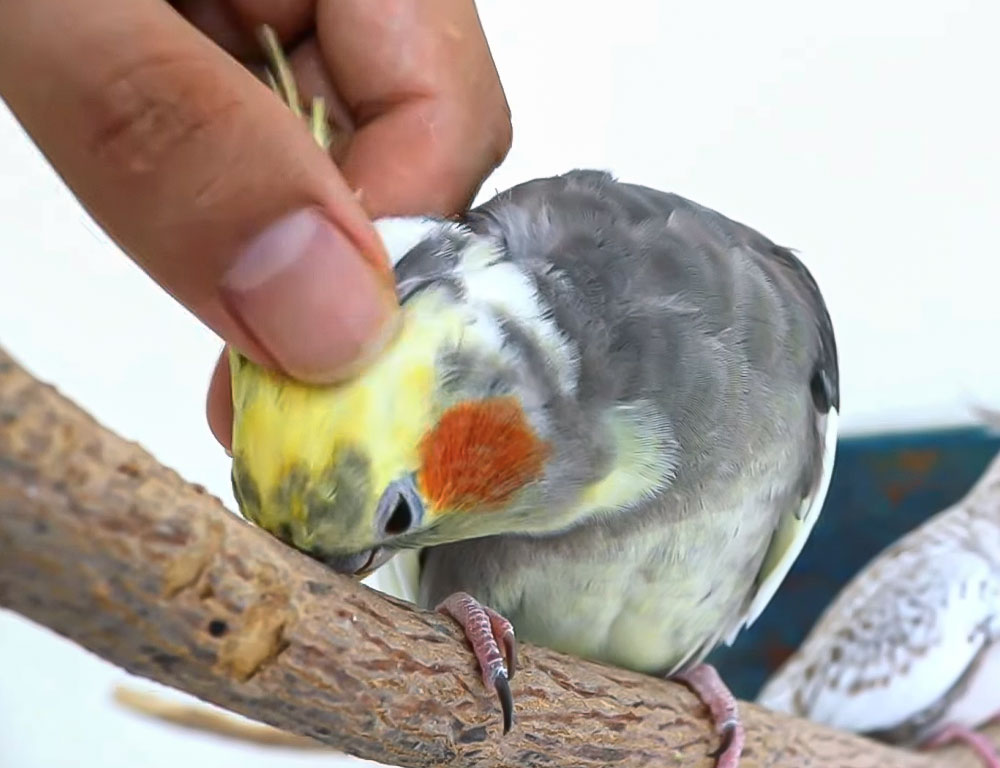
Why Does My Bird Rub His Beak on Me? Here are the Reasons
Below is the meaning of this trait in your feathered friend:
1. Affection and Bonding
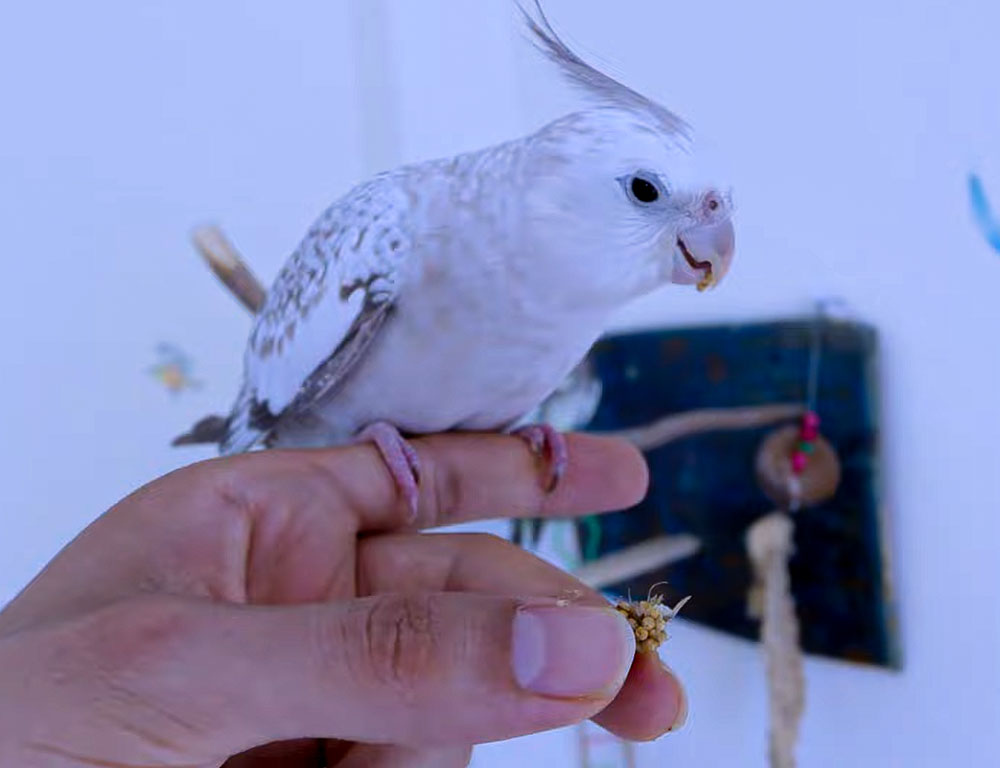
Beak rubbing is one of the ways birds show affection and bonding towards their flock members. In captivity, birds often transfer these behaviors to their human caretakers as a form of social bonding and affection.
This behavior signifies that your bird feels comfortable and secure around you and considers you a member of its flock.
2. Social Interaction
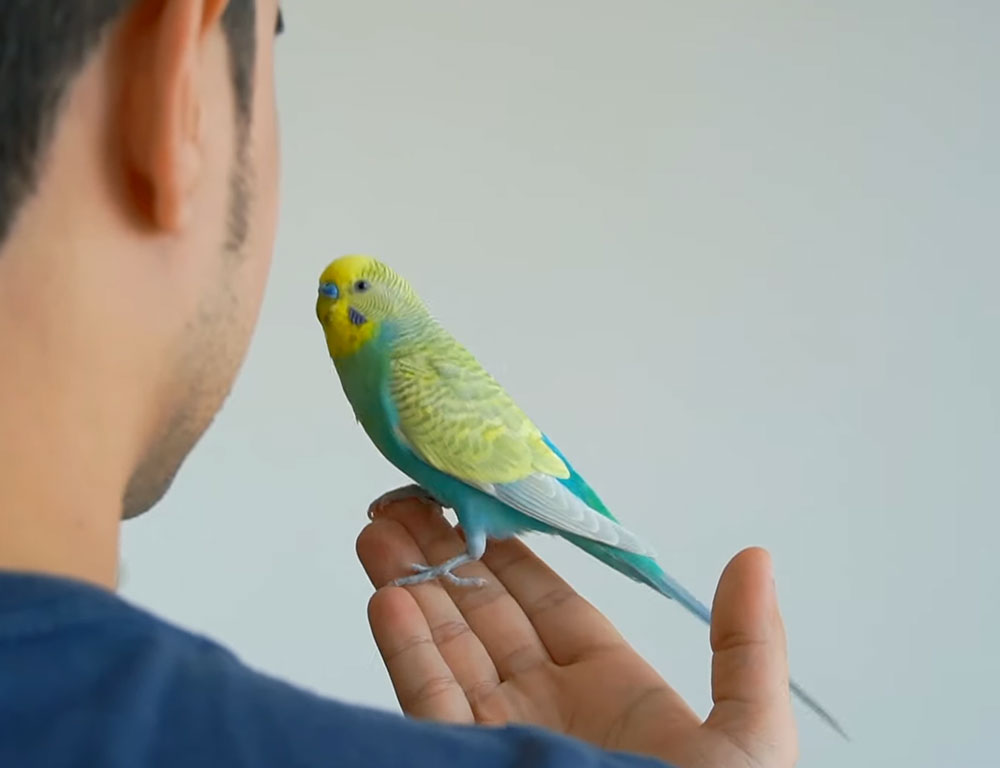
The trait is also a way for birds to interact with one another. Wild birds use beak rubbing to establish social hierarchy and communicate with their flock members. In captivity, birds may engage in beak rubbing with their cage mates or owners they interact with regularly to communicate.
3. Grooming
Birds will use their beak to preen their feathers and remove dirt or parasites. In captivity, birds may engage in beak rubbing with their human caretakers as a way to request grooming or as a way to groom their caretaker.
4. Expression of Physical and Emotional State
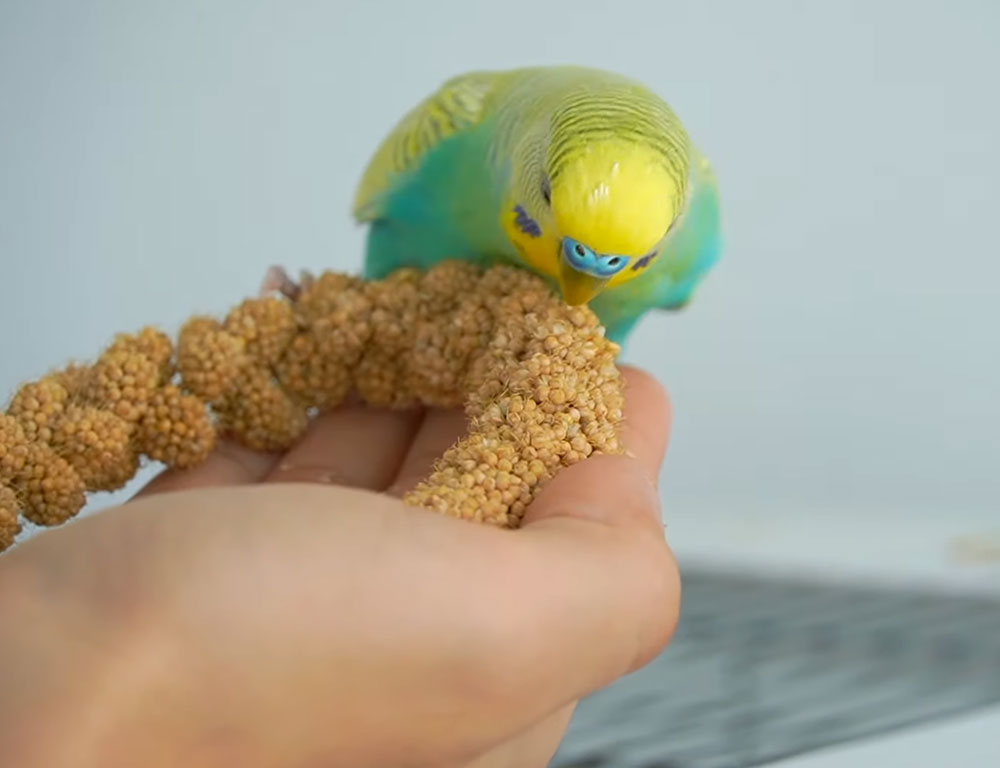
Beak rubbing can also be used as a way for birds to express their physical and emotional state. For example, stressed or anxious birds may engage in increased beak rubbing.
Similarly, birds in pain or feeling unwell may also engage in increased beak rubbing to communicate their discomfort.
5. Genetics and Type of Bird
This behavior can also be influenced by genetics and bird species. Some bird species tend to engage in beak rubbing more than others. Additionally, some individual birds may be more inclined to engage in beak rubbing due to their genetic makeup.
For instance, if you own a parrot, they will be more likely to rub their beaks on you than other birds.
6. Requesting Attention or Food
The trait can also be a way for birds to request attention or food from their caretaker. For example, a bird may engage in beak rubbing when hungry or wants to be petted or played with.
7. Indicating Health Issues or Discomfort
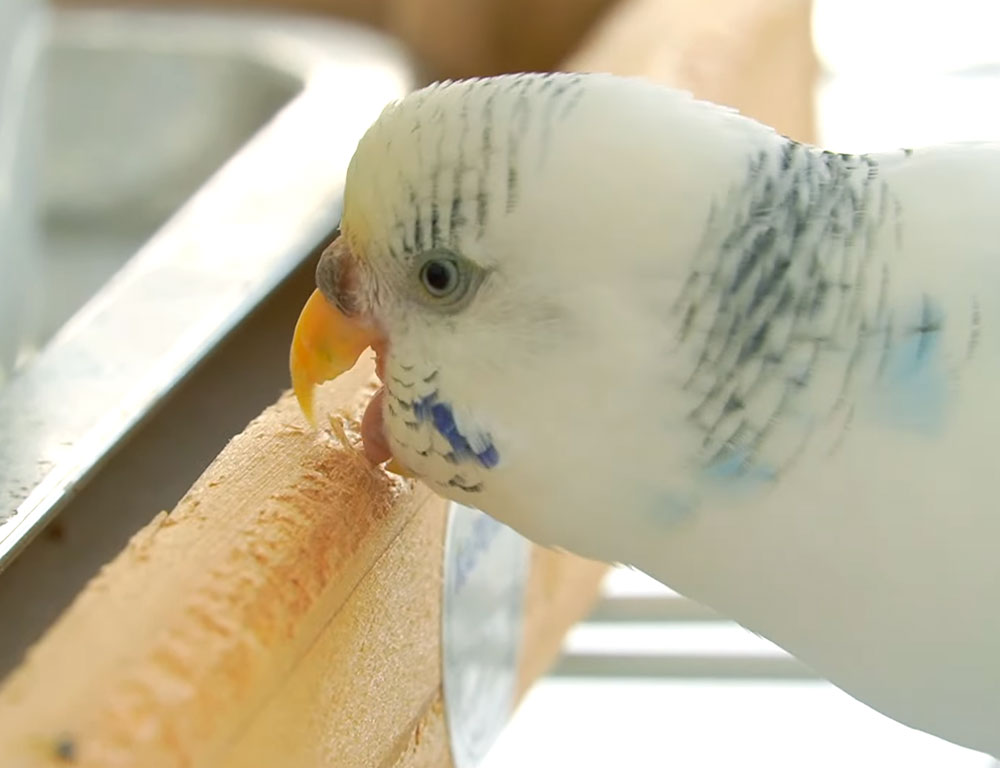
A bird that is experiencing pain or discomfort may engage in increased beak rubbing as a way to communicate its distress. For example, birds that have an overgrown beak or have health issues with their beak may engage in beak rubbing to alleviate discomfort or pain.
8. Relieving Stress or Anxiety
Birds are highly social animals and may become stressed or anxious when separated from their flock. They may also be anxious when placed in unfamiliar environments.
Beak rubbing with their captors can provide a sense of comfort and security for the bird and can help to alleviate stress and anxiety.
9. Indicating a Need for Sleep or Rest
These feathered friends require a significant sleep to maintain their physical and mental health. Birds that need rest may engage in beak rubbing to indicate that they need to sleep or rest.
10. Showing Trust
Birds that are comfortable and secure around a specific person or animal may engage in more beak-rubbing behavior. They do so to demonstrate their trust and submission. This is a positive sign that your bird feels safe and secure around you and trusts you as a member of its flock.
What does it Mean if the Bird Rubs His Beak on the Cage?
What about when your bird rubs its beaks on the cage? What does it mean? Here is a breakdown:
1. Marking Territory
Wild birds will use beak rubbing to leave their scent and claim a specific area as their own. When caged, birds may also engage in beak rubbing with their cage or a specific perch to mark their territory.
2. Expressing Dominance
In wild bird flocks, dominant birds will engage in more beak-rubbing behavior to assert their dominance over other flock members. Similarly, in captive bird environments, birds may engage in beak rubbing. This is a way to assert dominance over their cage mates or other birds they interact with regularly.
3. Hormonal Changes
Hormonal changes can also play a role in this regard. For example, during breeding, birds may engage in beak rubbing more frequently. This will demonstrate courtship or mating behavior, and you should find them a mate.
Similarly, birds experiencing hormonal changes related to molting or egg-laying may also have this habit.
How to Respond to Beak Rubbing
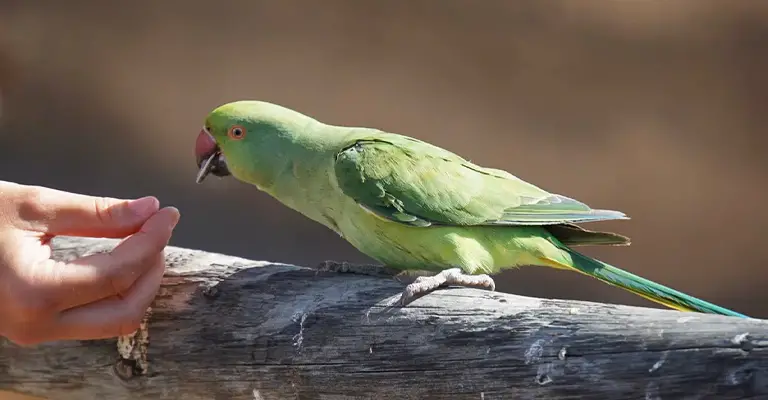
Here is how to tackle the beak-rubbing behavior:
1. Acknowledge and Respond to the Behavior
It is recommended to acknowledge and respond to a bird’s beak-rubbing behavior. This behavior allows birds to communicate and express their needs and emotions.
Ignoring this behavior may cause the bird to become frustrated or stressed. Responding to the behavior by offering a treat or engaging in interactive play can help to strengthen the bond between you and your bird.
2. Pay Attention
Pay attention to the context in which the beak rubbing is occurring. For example, if a bird engages in beak rubbing during feeding time, it may request food.
If a bird engages in beak rubbing during playtime, it may request interactive play. It may also indicate it needs a mate if it’s during the breeding season.
3. Be Consistent
Consistent in your response can help establish clear communication and a strong bond between you and your bird. Otherwise, it will confuse your pet.
4. Avoid Punishment
Punishing a bird for engaging in this behavior may cause the bird to become fearful or stressed. Additionally, it may ultimately damage the bond between you and your bird. So consider this natural.
6. Consult with a Veterinarian
If a bird’s beak rubbing behavior is excessive or seems to be caused by an underlying health condition, visit a veterinarian. They can examine the bird and guide how to address any underlying health issues contributing to the behavior.
7. Proper Care
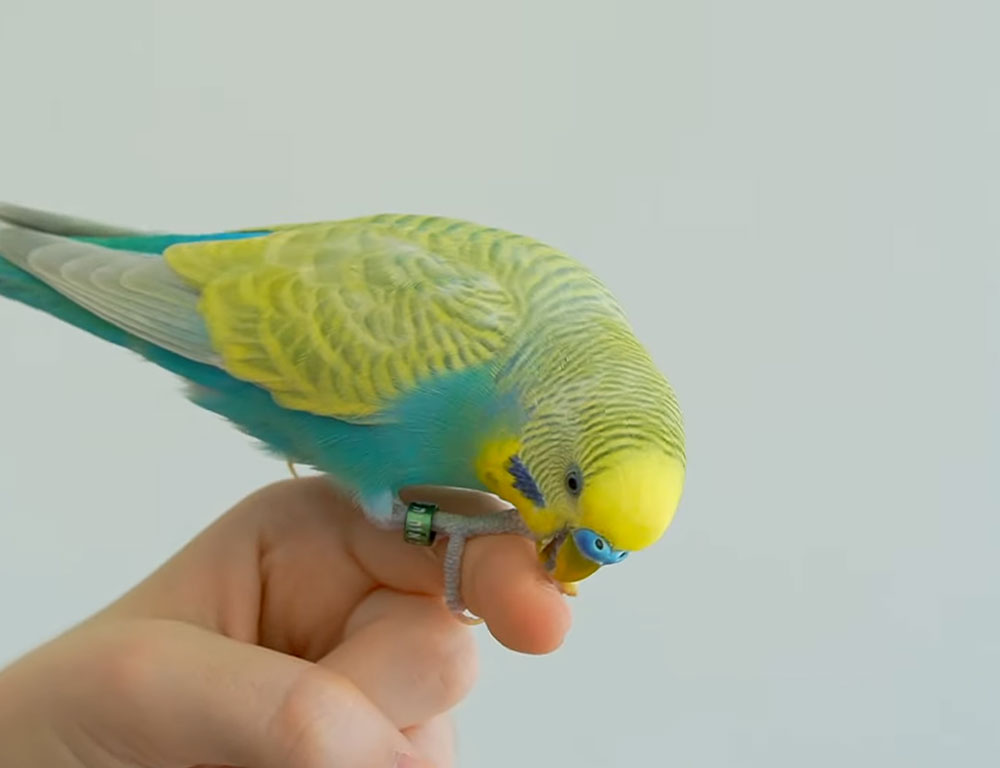
Providing proper care for your bird can help to reduce the occurrence of beak rubbing behavior. This includes providing a healthy diet, appropriate housing, and regular veterinary check-ups. Interactive play and training can help reduce stress and prevent boredom, contributing to beak-rubbing behavior.
8. Manage Stress or Anxiety
Address any underlying stress or anxiety that causes this behavior. Provide your bird with a comfortable and safe environment, as well as by providing opportunities for socialization and enrichment.
FAQs
Here are answers to common questions about birds and beak rubbing
No. It is unnecessary to discourage a bird from rubbing its beak on you. It is normal behavior that birds engage in to express affection and bonding and communicate with their flock members. However, if it becomes excessive or aggressive, seek guidance from a veterinarian.
One of the most obvious signs is when your bird willingly comes to you and allows you to pet or hold it. It may also preen or groom you, which signifies affection. Another sign is mimicking your words or actions and making noise when you are around.
Conclusion
So, you now know the answer to the question, why does my bird rub his beak on me? Beak rubbing is a common behavior exhibited by birds and can have a variety of meanings.
It is a way for birds to communicate with one another, establish a social hierarchy, and bond with their flock members and caretakers. Understanding the reasons behind a bird’s beak-rubbing behavior can help create a stronger bond between you and the bird.